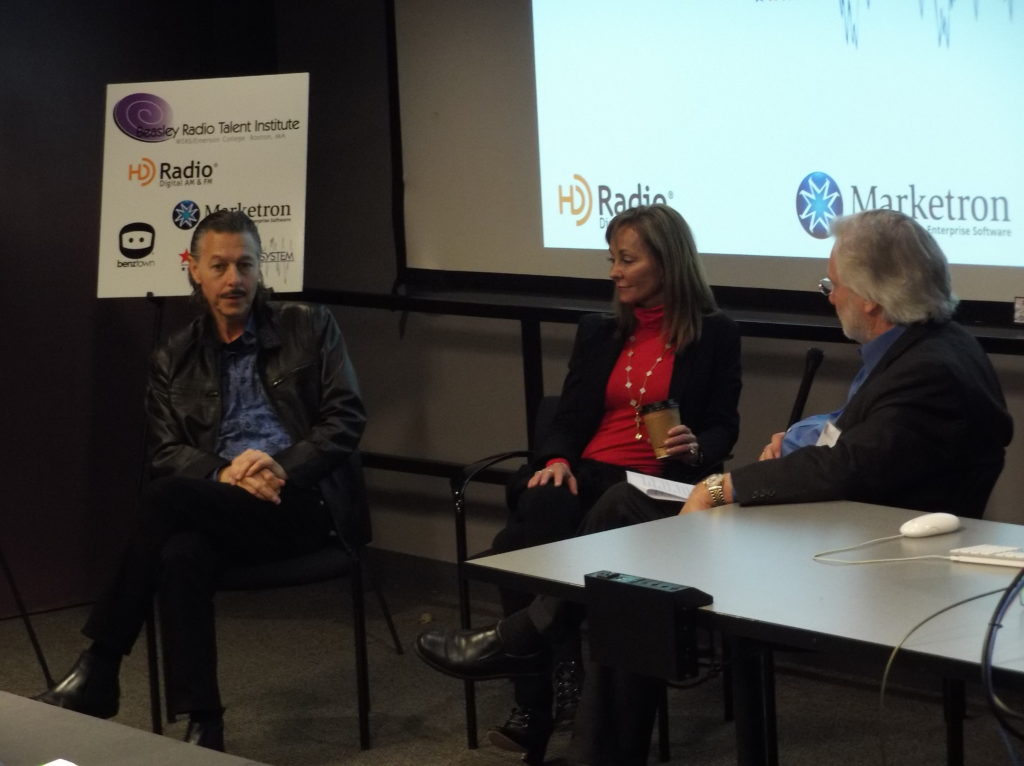
Even though radio has lived with social media for more than a decade, many stations and companies still struggle with the platform. Part of the reason why is there are so many social media outlets – all of which provide different experiences, services, and engagement options. And every radio station audience has a different profile of social media preferecne and usage.
For good reason, Facebook is always the topic of conversation because of its sheer reach as well as its ability to draw in nearly two billion users. And for many latecomers to social media, Facebook was the gateway drug – the choice their friends, kids, and old classmates first used that attracted them to the social habit in the first place.
And Facebook is always in the news – especially lately, as founder Mark Zuckerberg has wrestled with the platform and a growing number of critics. But despite the protestations of so many who have threatened to get off the Facebook grid due to privacy concerns, the social media behemoth appears to be realtively unaffected.
Until you dig a little deeper.
Yesterday, I gave a 35,000 foot view presentation of the radio industry to a group of eager college students who signed up for Dan Vallie’s National Radio Talent System 10-day program. This time around, it was held in Boston at Emerson College – first. And it was sponsored by long-time supporter Beasley Media Group.
I’ve written about Dan’s labor of love a number of times, but this was my first foray presenting as “faculty.” And it was a rewarding experience to be in the presence of sharp, curious teens and early twentysomethings truly excited about a career in radio.
I dug a bit deeper into Techsurvey 2018 for my presentation, especially looking at teen-specific findings that would resonate with the students. And it wasn’t hard to find them, because Gen Z doesn’t think, react, or engage with media and technology the way their parents and grandparents do. This is especially the case with social media, where Facebook continues to play the alpha dog role.
Except with teens.
In fact, the biggest social network in America (if not the world) doesn’t rank #1, or a close #2, or a respectable #3. In teenworld, Facebook is a distant fourth.
The top three positions are held down by YouTube, Instagram, and Snapchat. Facebook isn’t even close.
And then I opened up my email, and ran into the Tech Insider Chart of the Day featuring a Pew study of teens and social media. And the results mirror Techsurvey, despite very different samples, different methodologies, and even different questions:

Now our Techsurvey track record with teens in Techsurvey has been spotty. Out of a sample of more than 64,000 respondents, only 154 teenagers participated. Pew’s N-size is comrpised of 743 teens, and yet the results are amazingly similar.
Despite radio’s antipathy toward teens, they’ve often been the force behind so many of the innovations that radio broadcasters now focus on and even covet. They were early on mobile, podcasts, video games, and of course, social media. And while many mature adults who’ve been on Facebook for years often forget, it was very likely their kids (and grandkids) that first introduced them to social media via Facebook.
But that ship has sailed. And teens have been running away from Facebook for some time now, gravitating to platforms that suit their needs – and distances them from Aunt Gert, mom’s bridge club, and dad’s college buddies.
What will it be like for Facebook’s team to come to grips with the reality they’re losing the next generation – and a big one – to its competitors? (Yes, they own Instagram, so maybe this is their cluster strategy.) Remember that “The Facebook” was originally a college campus “social network” before it was released for membership by the rest of us in 2006.

But bigger picture, when you aren’t cool enough for Generation Z, that makes a major statement about the future of a platform or brand – especially for the incumbent like Facebook. Radio’s executives should pay close attention to whether Zuckerberg walks away from teens, or is already conjuring up efforts to reel them back in with a different version of the platform.
In our classroom gathering at Emerson College, I was gratified to see many of these young, fledgling radio stars taking notes, processing what they were seeing and hearing, and thinking about how they’re going to engage with the radio industry – and perhaps even change it.
And I was going through the same motions from the front of the room – watching their reactions, their eyes, and their body language – seeing what was resonating with them – and what wasn’t.

We’re at a peculiar crossroads in radio where the disruption impacting the industry for the last decade or two is now finally being channeled into innovation. Radio CEOs are more willing than ever to experiment, to throw a long pass now and then, or even roll the dice.
But in order to be effective in the digital arena, the industry needs more directional research studies like Techsurvey to better deploy its strategic and financial resources. And it needs to more openly consider its human resources, namely young people who are “digital natives,” armed with intuitive knowledge and years of experience in the space.
These teens who want to make their mark in the next phase of radio’s journey are to be celebrated and welcomed into the fold.
Like Facebook , we need them now more than ever.
Maybe even more than they need us.
- The Guy In The Next Car - May 6, 2025
- 5 Lessons For Radio From The Apple Watch - May 5, 2025
- DJs And Baristas: Can They Save Their Companies? - May 2, 2025




Leave a Reply